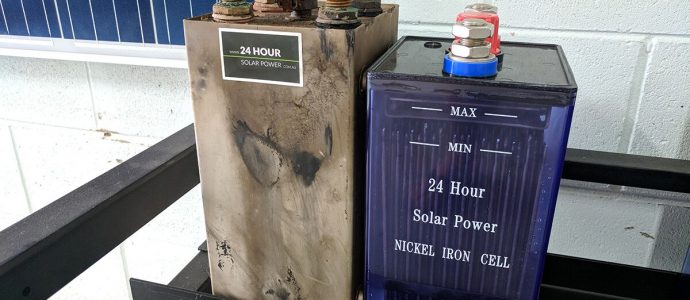
THE MOST ETHICAL RENEWABLE ENERGY SYSTEMS
The main thing in renewable energy systems is the embodied energy: the energy over the lifetime of the product versus the energy of manufacturing it. Lithium batteries are used a lot because they are lightweight, but they don’t last. Lead-acid batteries, like car batteries, are also short-lived. An old technology, the nickel-iron battery, lasts a long time.
Lithium batteries are great when there might be a space or weight issue, but they are consumable products. Lead-acid batteries decays as they give energy. The nickel-iron battery powered the first electric cars, some of which had batteries that worked over 100 years later. These are not acid, but alkaline, made with a potassium hydroxide mix.
While they are only 1.2 volts, which means a lot of batteries and a lot weight, in a stationary situation, such as a house, the embodied energy is much, much better in nickel-iron batteries.
Key Takeaways:
– Renewable energy is best judged via embodied energy: the amount of energy it provides over a lifetime versus the amount used to produce the system.
– Lithium and lead-acid batteries both have short lifespans, decreasing their embodied energy, and as a result, they create more waste.
– Nickel-iron batteries, a very old technology, lasts an incredibly long time and have much more embodied energy.
-In a stationary situation, such as powering a house, nickel-iron batteries, though they require more space and weigh more, are a more ethical choice.